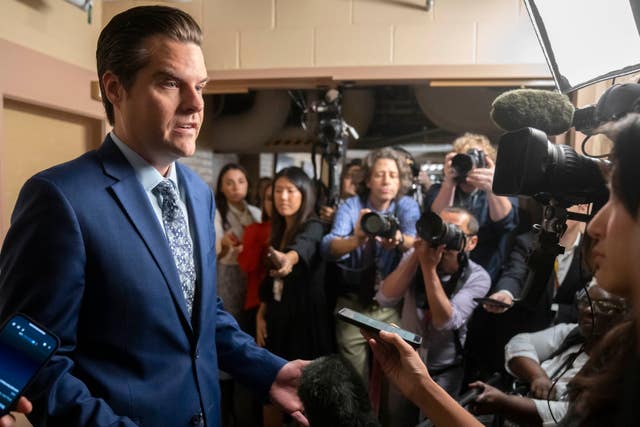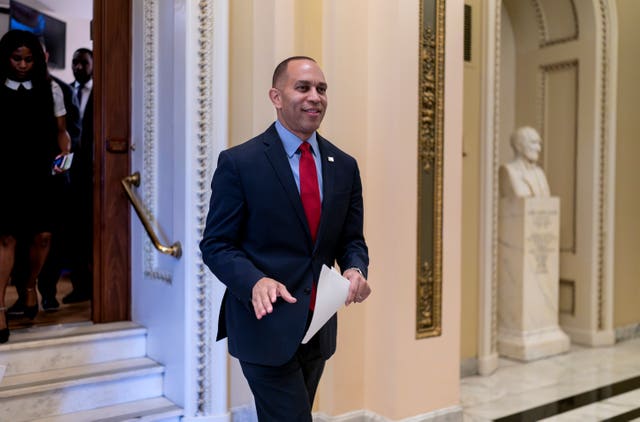Kevin McCarthy has been voted out of his role as speaker of the US House of Representatives in an extraordinary showdown, a first in US history that was forced by a contingent of hard-right conservatives and threw the House and its Republican leadership into chaos.
His chief rival, Matt Gaetz, forced the vote on the “motion to vacate”, drawing together more than a handful of conservative Republican critics of the speaker and many Democrats who said he was unworthy of leadership.
Next steps are uncertain, but there is no obvious successor to lead the House Republican majority.
Stillness fell as the presiding officer gavelled the vote closed at 216-210, saying the office of the speaker “is hereby declared vacant”.
Moments later, a top McCarthy ally, Patrick McHenry, took the gavel and, according to House rules, was named speaker pro tempore, to serve in the office until a new speaker is chosen.

The House then briskly recessed so legislators could meet and discuss the path forward.
It was a stunning moment for the battle-tested Mr McCarthy, fuelled by growing grievances but sparked by his weekend decision to work with Democrats to keep the federal government open rather than risk a shutdown.
An earlier vote was 218-208 against tabling the motion, with 11 Republicans allowing it to advance.
The House then opened a floor debate, unseen in modern times, ahead of the next round of voting.
Mr McCarthy, of California, insisted he would not cut a deal with Democrats to remain in power — not that he could have relied on their help even if he had asked.
Democratic leader Hakeem Jeffries said in a letter to colleagues that he wanted to work with Republicans but was unwilling to provide the votes needed to save Mr McCarthy.
“It is now the responsibility of the GOP members to end the House Republican Civil War,” he said, announcing the Democratic leadership would vote for the motion to oust the speaker.
As the House fell silent, Mr Gaetz, an ally of Donald Trump, rose to offer his motion. He is a leader of the hard-right Republicans who fought in January against Mr McCarthy in his prolonged battle to gain the gavel.

Mr McCarthy’s fate was uncertain as the debate unfolded, with many of the complaints against him revolving around his truthfulness and his ability to keep the promises he had made since January to win the gavel.
But a long line of supporters stood up for him, including Jim Jordan, a founding leader of the conservative Freedom Caucus, who said: “I think he has kept his word.”
Garret Graves, waved his mobile phone, saying it was “disgusting” that hard-right colleagues were fundraising off the move in text messages seeking donations.
Mr McCarthy insisted he had not reached across the aisle to Mr Jeffries for help with votes to stay in the job, nor had they demanded anything in return.
During the hour-long meeting in the Capitol basement, he invoked Republican speaker Joseph Cannon, who more than 100 years ago confronted his critics head-on by calling their bluff and setting the vote himself on his removal.
Mr Cannon survived that takedown attempt, which was the first time the House had voted to consider removing its speaker. A more recent threat, in 2015, did not make it to a vote.
Mr McCarthy received three standing ovations during the private meeting — one when he came to the microphone to speak, again during his remarks and finally when he was done, according to a Republican at the meeting who was granted anonymity to discuss it.
At one point, there was a show of hands in support of Mr McCarthy and it was “overwhelming”, said Ralph Norman, a member of the House Freedom Caucus.
